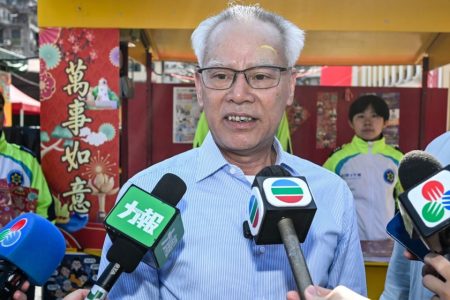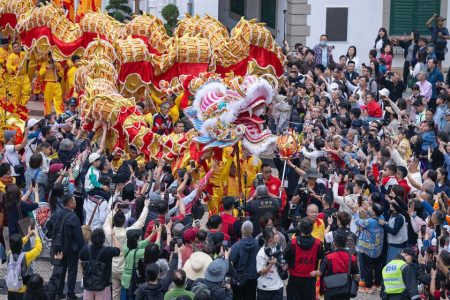The Legislative Assembly yesterday passed the outline of a government-initiated bill licensing and regulating veterinarians, veterinary clinics and other animal businesses, which hitherto have been completely unlicenced in Macao.
Secretary for Administration and Justice André Cheong Weng Chon introduced the outline of the bill during a plenary session in the legislature’s hemicycle.
The bill will later be passed to a standing committee of the legislature for an article-by-article debate and review, after which it will be resubmitted for its final debate and vote.
The bill proposes that veterinarians in Macao will finally be officially accredited and licensed. Firstly, according to the bill, those who plan to work as a veterinarian in Macao will have to obtain a veterinary bachelor’s degree, and a qualification to work as a vet elsewhere, for them to be officially recognised by a committee as being qualified to work as a vet here. Afterwards, those who have been accredited by the committee will have to apply to be licensed to work as a veterinarian at the Municipal Affairs Bureau (IAM).
According to the bill, the proposed compulsory veterinary licensing will not apply to public servants working as veterinarians.
The bill proposes that after an individual has been accredited to work as a veterinarian in Macao, it will be valid permanently.
However, the bill proposes that a licence will be valid for two years, and a veterinarian will have to go through continuing education and training for their licence to be renewed.
The bill proposes to establish a system of veterinarians’ professional accreditation and licensing, as well as the supervision of facilities for clinical veterinary care, animal breeding, sales and accommodation.
If the bill is passed by the Legislative Assembly in its final article-by-article debate and vote, it will become the first compulsory veterinary licensing legislation in Macao which will ban unlicensed vets from conducting medical or surgical treatment of animals, thereby filling a legal gap regarding veterinary accreditation and the regulation of animal clinics.
The bill proposes to set up a committee consisting of seven veterinary professionals tasked with assessing and approving applications for being accredited to work as a veterinarian in Macao. The committee will be tasked with compiling a list of officially-accepted veterinary degrees and veterinary practice qualifications issued elsewhere.
Cheong pointed out yesterday that no veterinary degrees are offered in Macao’s higher education institutions.
In addition, according to the bill, the committee will also be tasked with providing the IAM with opinions concerning veterinarians’ applications for the renewal of their licences.
Cheong noted that the bill does not propose that veterinarians in Macao must be local residents, which, he said, means that non-locals will also be allowed to work as veterinarians in Macao – as long as they meet the officially required qualifications. But Cheong underlined that local residents will always be given priority when it comes to the employment of veterinarians.
Also addressing yesterday’s plenary session, Ung Sau Hong, a member of the IAM’s administrative committee, said that 40 public servants are currently working as veterinarians, while there are around 54 veterinarians working for animal clinics in the private sector. Around one third of the private sector’s veterinarians are non-resident workers, Ung said.
In addition to veterinarians, the bill also proposes the licensing of animal clinics and other animal businesses.
The bill defines animal clinics as either non-profit or commercial facilities where veterinarians conduct medical or surgical treatment of animals, while other animal business facilities are defined as those providing either animal breeding, sales or accommodation.
The bill proposes that a facility will only be allowed to be used as either an animal clinic or an animal business facility.
According to the bill, an animal clinic must employ at least one licensed veterinarian, while an animal business facility will only be allowed to be used for animal breeding, sales or accommodation.
The bill proposes that animal clinics will not be allowed to be located in real estate used for residential purposes, while an animal business facility will not be allowed to run in any real estate that is not earmarked for such business activities, such as hotels and those used for residential or industrial purposes.
Cheong noted yesterday that, according to the bill, an animal clinic will be allowed to be located in any real estate that is not a residential flat, while an animal business must be located in a shop or unit earmarked for commercial purposes.
Cheong also pointed out that the proposed licensing of animal business facilities will not cover pet beauty salons, but he underlined that a pet beauty salon must also be licensed as long as it involves the sale or accommodation of animals, The Macau Post Daily reported.






